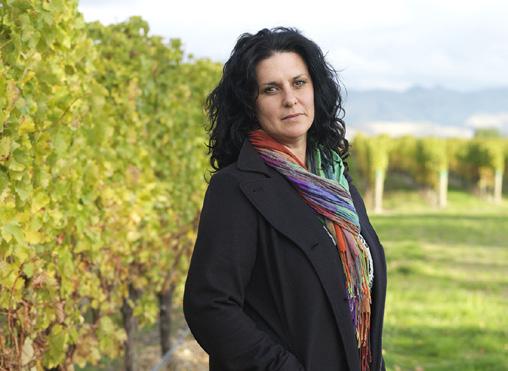
4 minute read
Port Pause
Many a slip twixt the wine and the ship
SOPHIE PREECE
Advertisement
SHIPPING DELAYS are “majorly” impacting wine exports, says Siobhan Wilson of Marisco Vineyards in Marlborough. “We have orders coming in, which we are madly bottling the new vintage to meet, to then have the containers bumped off boats,” says the general manager, sales and marketing. “This is having a negative impact on delivering our sales budgets, our financial planning and cash flow.”
The ramifications of Covid-19 mean exporting has been challenging for the past six to eight months, but the impact is worse now than ever, because of decisions shipping companies made when the pandemic was in “full swing”, says Siobhan. “The reduction in the number of boats coming to New Zealand, and therefore the availability of space on these boats, means that we are competing with not just other wine companies but all export products from New Zealand to get our orders on board.”
Ships are being overbooked, so that containers all set to go get “bumped off” and have to wait another two weeks for potential space on another vessel, she says. “Even more challenging is when boats omit coming to Nelson at all – which means that there can be up to a month before another boat is coming in.”
The delays are not just a result of departures from New Zealand, but also because ships are caught up in other ports, which is “something we haven’t experienced before and cannot plan for”, says Siobhan. Another issue being faced by wine companies is the shortage of containers for use in exporting wines, due to the reduced number of ships coming in, she says.
The delays have resulted in the company missing out on promotional deadlines, particularly in the northern hemisphere, at a time when demand is on the increase because of Covid-19, she adds, noting much higher demand for Sauvignon Blanc over the past year. “This of course is then exasperated by lower yields of 2021.” The late arrival of containers in foreign markets also means delayed payment of invoices, “as customers won’t pay for stock they haven’t received”.
Communication has been key to getting through sketchy shipping schedules, Siobhan says. The company is talking to all its customers and asking for longer lead times on orders so bookings can be made well in advance “with the hope that they will stick”. They are also informing customers as soon as they hear of a delay, she says.
Meanwhile, Marisco has explored other port options to decrease its reliance on Nelson, but with the whole of New Zealand impacted, have had little success on that front, Siobhan says.
Over at Saint Clair Family Estate, export manager Sarah Lissaman says some freight bookings are being amended multiple times before the wine finally departs the country. In one example, a 20-foot container intended for Germany had a ready date for export in early April, but did not depart New Zealand until the end of May, with the original booking amended four times.
In another example of shipping headaches, a tender winning wine destined for Norway had a specific launch date in market, which Saint Clair was in danger of missing, says Sarah. They approached their buyer in Finland to see if they could supply the same wine, but complications with wine labelling laws in Norway derailed that option. “It took multiple emails and suggestions of alternative ways to deliver the wine to market before the issue was finally resolved.”
Sarah says the export issues started to bite during New Zealand’s Covid-19 Alert Level 4 lockdown last year. “Not only was the space on the vessels in short supply and fewer vessels calling at New Zealand ports, but the equipment needed (20 and 40-foot containers) was difficult for the freight forwarders to source.”
However, those freight forwarders have been “fantastic”, and have worked with WineWorks Marlborough to alert the company of any changes to the shipping schedule, Sarah says. “We have had to keep an extra close eye on export certification expiry dates, so that export certification for all wines in our shipments stay current.”
In some cases, Saint Clair’s importers are running out of stock of some wine labels in their markets. “We are doing our best to bottle the new vintage 2021 Sauvignon Blanc as early as we can,” Sarah says. “Demand for our Reserve and Pioneer wines has been very strong and we sold through the 2020 vintage Sauvignon Blanc ahead of previous years.” Cloudy Bay technical director Jim White says the company blended a month earlier than normal, to ensure the 2021 Sauvignon Blanc gets to overseas markets in time for its October 1 launch. “We were worried about shipping delays,” says Jim, explaining a strategy to prioritise bottling of wines with a longer travel time. “We have had to preempt the delays.”






